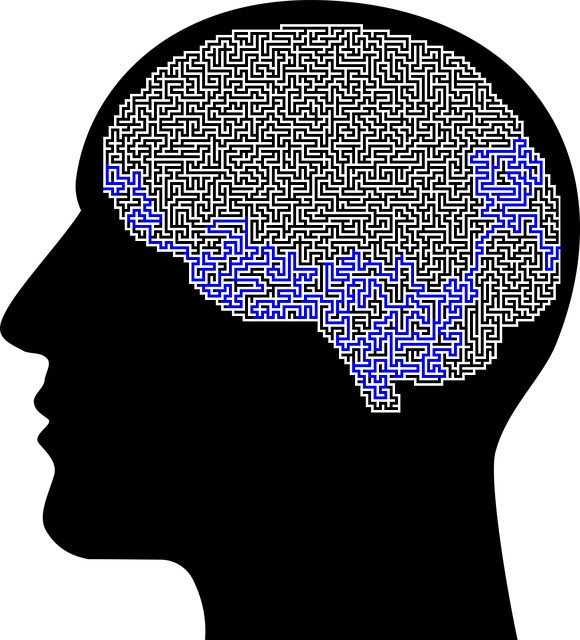Gambling addiction, a silent crisis, profoundly impacts mental health, causing stress, anxiety, depression, and damaging relationships. Effective recovery requires holistic approaches like Mind Over Matter therapy, Mindfulness Meditation, and immediate crisis intervention. Therapy for Gambling focuses on mental wellness coaching, coping strategies, and empathy building to tackle symptoms and underlying causes. Integrating specialized therapy services with digital platforms and community programs broadens engagement with at-risk groups. Policy changes, including financial assistance or insurance coverage, remove cost barriers and enhance access to Therapy for Gambling, addressing root causes for better mental health outcomes on a societal level.
Mental health advocacy initiatives play a pivotal role in addressing the growing concern of gambling addiction. This article delves into the profound impact of gambling addiction on mental well-being, exploring its pervasive effects and the urgent need for effective interventions. We analyze existing advocacy programs, examining their success stories and gaps. Furthermore, innovative strategies targeting at-risk populations are discussed, alongside policy changes that can enhance access to life-saving therapy for gambling addicts.
- The Impact of Gambling Addiction on Mental Health
- Existing Advocacy Programs and Their Effectiveness
- Innovative Strategies for Reaching At-Risk Populations
- Policy Changes and Their Role in Promoting Access to Therapy
The Impact of Gambling Addiction on Mental Health

Gambling addiction, often overlooked as a silent crisis, has profound implications for mental well-being. The constant pursuit of winning can lead to a vicious cycle of stress, anxiety, and depression. Individuals affected may struggle with feelings of helplessness, low self-esteem, and severe financial distress, all of which contribute to a decline in overall mental health. This addiction does not discriminate; it affects people from all walks of life, impacting their personal relationships, work performance, and social interactions.
Addressing gambling addiction is crucial for implementing effective mental health advocacy initiatives. Therapy for Gambling, based on principles like Mind Over Matter and incorporating practices such as Mindfulness Meditation, offers a holistic approach to recovery. Crisis Intervention Guidance plays a pivotal role in providing immediate support during acute stages, preventing further deterioration of mental health. By combining these strategies, we can foster resilience, restore balance, and empower individuals on their journey towards overcoming gambling addiction.
Existing Advocacy Programs and Their Effectiveness

Mental health advocacy initiatives have gained significant traction in recent years, with various programs focusing on different aspects of well-being. Among these, Therapy for Gambling has emerged as a crucial area of concern, given the growing awareness of gambling addiction’s impact on mental health. Existing programs aim to provide support through mental wellness coaching, offering individuals strategies for coping and recovery. These coaches facilitate conversations that foster empathy building and encourage clients to develop inner strength, essential components in navigating mental health challenges.
The effectiveness of these advocacy efforts lies in their holistic approach, addressing not just symptoms but also the underlying causes. By combining therapy with coaching, these programs empower individuals to take control of their mental wellness, promoting long-term resilience and improved quality of life. This development in mental health support is pivotal in creating a more empathetic and supportive society.
Innovative Strategies for Reaching At-Risk Populations

In the fight against mental health disparities, innovative strategies are essential to reach at-risk populations effectively. One such approach is integrating therapy services tailored for specific issues like gambling addiction. By offering accessible and specialized treatment for gambling-related disorders, initiatives can significantly impact individuals often overlooked in traditional mental health care. This strategy not only addresses a growing concern but also showcases a proactive approach to mental health advocacy.
Additionally, leveraging digital platforms and community-based programs allows for broader engagement with at-risk groups, including those facing depression or burnout. Mental Health Policy Analysis and Advocacy play a crucial role in shaping inclusive policies that encourage early intervention and support systems. By combining targeted therapy, like that for gambling, with robust advocacy efforts, there’s potential to create a more comprehensive safety net for vulnerable communities.
Policy Changes and Their Role in Promoting Access to Therapy

Policy changes play a pivotal role in promoting access to therapy, especially for often-overlooked issues like gambling addiction. Governments and healthcare systems implementing measures that make therapy more accessible can significantly impact those struggling with behavioral addictions. One such policy shift could be subsidizing or insuring therapy sessions, making them financially feasible for all. This would encourage more individuals to seek help without facing the barrier of cost.
Additionally, integrating social skills training, compassion cultivation practices, and confidence-boosting activities within healthcare frameworks can enhance therapeutic outcomes. These approaches not only address the underlying causes of gambling addiction but also equip individuals with essential coping mechanisms and improved self-perception. By incorporating such initiatives into policy, we move towards a more holistic understanding and effective treatment of therapy for gambling, fostering better mental health outcomes on a societal level.
Mental health advocacy plays a pivotal role in addressing gambling addiction, its root causes, and subsequent impact on individuals. By examining existing programs and exploring innovative strategies, we can enhance access to essential therapy for at-risk populations. Policy changes that prioritize mental well-being are crucial in breaking down barriers to treatment, ensuring folks receive the support they need. Through collective efforts and a multifaceted approach, we can create a more inclusive and supportive environment for those grappling with gambling addiction.














